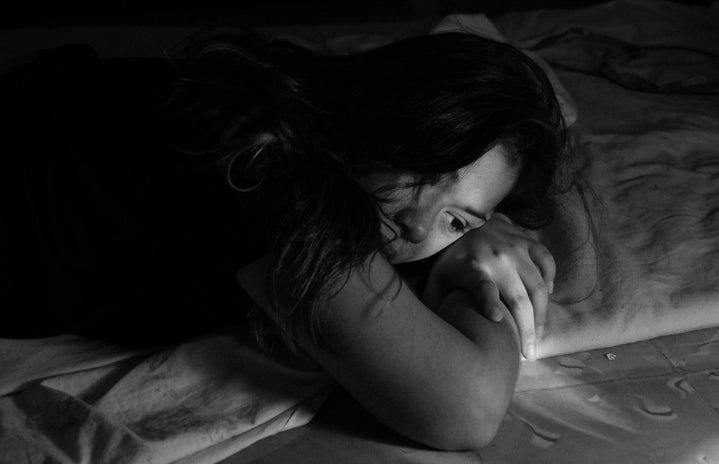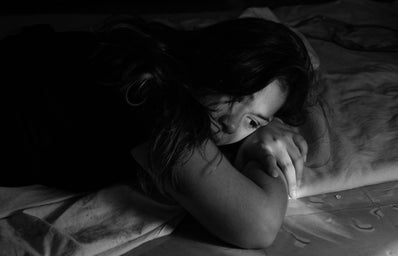Sleep paralysis is a condition in which you are unable to move or speak right as you’re falling asleep or waking up. The mind is conscious but the body is unable to move. Most people associate this condition with demons “visiting” them or “sitting” on top of them. Of course, those are just myths and haven’t necessarily been proven true. It can be different for every individual though.
I was born into a religious Christian household, so I do somewhat believe that demons are associated with sleep paralysis. My first episode of this condition was a couple of years ago and I just remember being so annoyed because my sleep was bothered by these “demons.” There are times where I do become afraid if it lasts longer than usual or when I actually feel where the paralysis comes from and how it’s spreading throughout the rest of my body. For example, it sometimes starts at my leg and moves upward. Sleep paralysis usually occurs when I am sleeping on my back so I always try to sleep on my side. Through the years I continue to experience sleep paralysis but I am able to better understand it through research.
As stated earlier, demons being associated with sleep paralysis is just still a myth. There are other factors as to why people experience this condition. According to the National Sleep Foundation, lack of sleep and having a shifting sleep schedule can actually cause you to have sleep paralysis. Sleep paralysis is also common in those who have narcolepsy and those who have mental health issues such as anxiety, depression, PTSD or panic disorder. You don’t necessarily have to be associated with these conditions in order to get sleep paralysis. It can affect men and women, from adolescence to young adults.
Photo by Craig Adderley from Pexels
Now you know the causes, but how can you prevent it from happening to you?
The NSF recommends that sticking to a sleep schedule and getting enough sleep can help prevent sleep paralysis. Also, try sleeping on your side instead of on your back. I can testify that this does work because I only experience sleep paralysis when I sleep on my back.
If you’re someone who suffers from sleep paralysis, know that there are ways to help you. Many people see it as a scary condition and it is at times. I have had many episodes of this condition and to be frank, I still haven’t gotten used to it. However, I feel more in control when I know what steps to take to try and prevent it from happening to me. Just remember to breathe and know that it won’t last too long.


